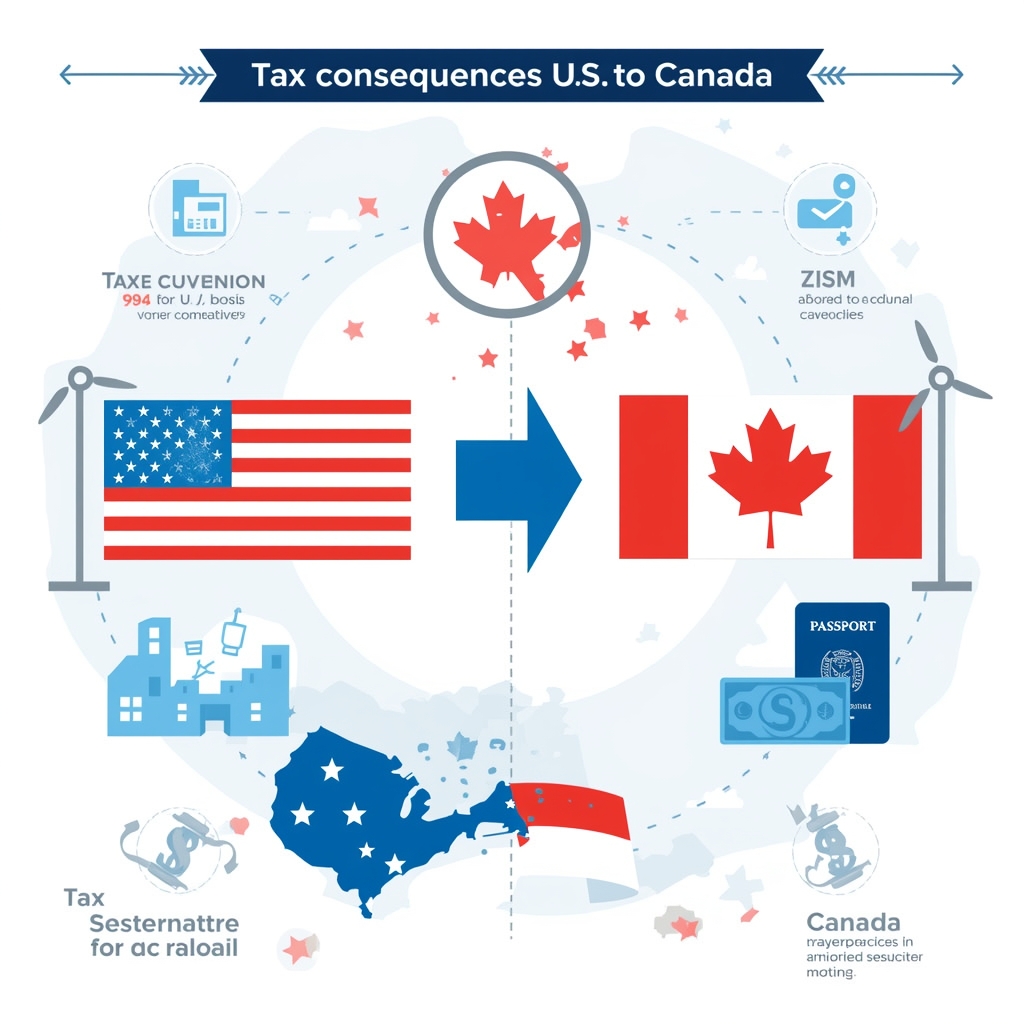5 Tax Consequences of Moving from the U.S. to Canada
2025-08-12 13:54:52

Understand the top 5 tax surprises for Americans moving to Canada, including dual filings, FBARs, and investment changes.
1. You’ll Still File U.S. Taxes — Plus Canadian Ones
If you’re a U.S. citizen moving to Canada, be prepared to file tax returns in both countries. Canada taxes based on residency, while the U.S. taxes based on citizenship — meaning even if you live abroad, the IRS still expects your Form 1040 each year. Once you become a Canadian resident, you’ll also file a T1 return to report worldwide income to the Canada Revenue Agency.
The U.S.–Canada tax treaty helps avoid double taxation by allowing foreign tax credits. If you pay tax to the CRA on your Canadian salary, you’ll typically get a credit for that on your U.S. return. But even if no extra tax is owed, you still need to file with both countries. That’s non-negotiable — and it applies whether or not you live in Canada full-time.
Tip: Partner with a cross-border tax advisor to ensure treaty benefits and credits are correctly applied.
2. Your Investment Portfolio May Need a Major Makeover
Before crossing the border, review your investment strategy. Many financial tools that are tax-advantaged in the U.S. can become liabilities in Canada:
-
Municipal bonds? Tax-free in the U.S., fully taxed in Canada.
-
U.S. brokerage accounts? Likely trigger Canada’s T1135 foreign asset reporting.
-
U.S. advisors? Most aren’t allowed to service Canadian residents unless licensed there.
-
Roth IRAs? Need a treaty election to keep tax-free growth.
-
U.S. trusts? Considered foreign trusts in Canada, with onerous filing rules.
-
Canadian mutual funds and ETFs? May be treated as PFICs by the IRS — a major tax headache.
In short, what worked in the U.S. might now cost you money or paperwork in Canada.
Tip: Sell or restructure problematic holdings before your move to reduce future tax headaches.
3. You’ll Report Foreign Assets — Twice
Yes, both countries require disclosure of foreign financial accounts:
-
U.S. citizens must file FBAR (FinCEN Form 114) for non-U.S. accounts with total balances over $10,000.
-
Canadian residents must file Form T1135 if they hold foreign assets (including U.S. brokerage accounts or real estate) worth over CAD 100,000.
These filings are separate from your tax returns and carry penalties if skipped — up to $10,000 per account for the FBAR, and $2,500 or more for T1135. Both countries expect complete transparency.
Tip: Consolidate accounts where possible and use expat-friendly tax software to stay compliant.
4. U.S. LLCs Are a Tax Trap in Canada
A U.S. LLC is usually a pass-through for U.S. tax purposes — but Canada treats it as a foreign corporation. That mismatch can lead to double taxation.
Example: Your LLC earns $100,000 in Year 1. You pay U.S. tax immediately. In Year 2, you take a dividend and Canada taxes it — but offers no credit for last year’s U.S. tax, because the timing doesn’t match. You get taxed twice.
Tip: If you’re relocating to Canada, consider closing or converting your LLC or setting up a Canadian corporation. Don’t keep a U.S. LLC without expert advice.
5. No Joint Filing in Canada
Canada doesn’t offer a “Married Filing Jointly” option. Each spouse must file their own return — regardless of income differences. This often results in higher taxes for households with one high earner and one low (or no) earner.
There are minor credits for dependents or low-income spouses, but no bracket-sharing like in the U.S. On the American side, you can still file jointly if both spouses are U.S. persons — but be cautious if your spouse is a Canadian citizen or has no U.S. ties.
Tip: Some expats opt to file separately in the U.S. to keep their non-American spouse out of the IRS system.
Final Thoughts
Relocating to Canada can be a great life decision — but from a tax perspective, it adds complexity. You’ll be filing two returns, disclosing assets in two countries, and rethinking your investment approach.
Here’s what smart movers do:
-
Meet with a cross-border tax advisor before your move
-
Adjust your investments to avoid PFIC and T1135 headaches
-
File FBAR and T1135 on time, every year
-
Understand how the tax treaty protects you — and where it doesn’t
-
Ditch U.S. LLCs unless you love overpaying taxes
With the right planning, you can make the transition without financial surprises. But winging it? That’s a good way to invite penalties, audits, or worse.
Next step:
Want help managing your FBAR or cross-border taxes? eFileFBAR.com offers expert help to keep your filings clean, simple, and stress-free.
M.Daniyal